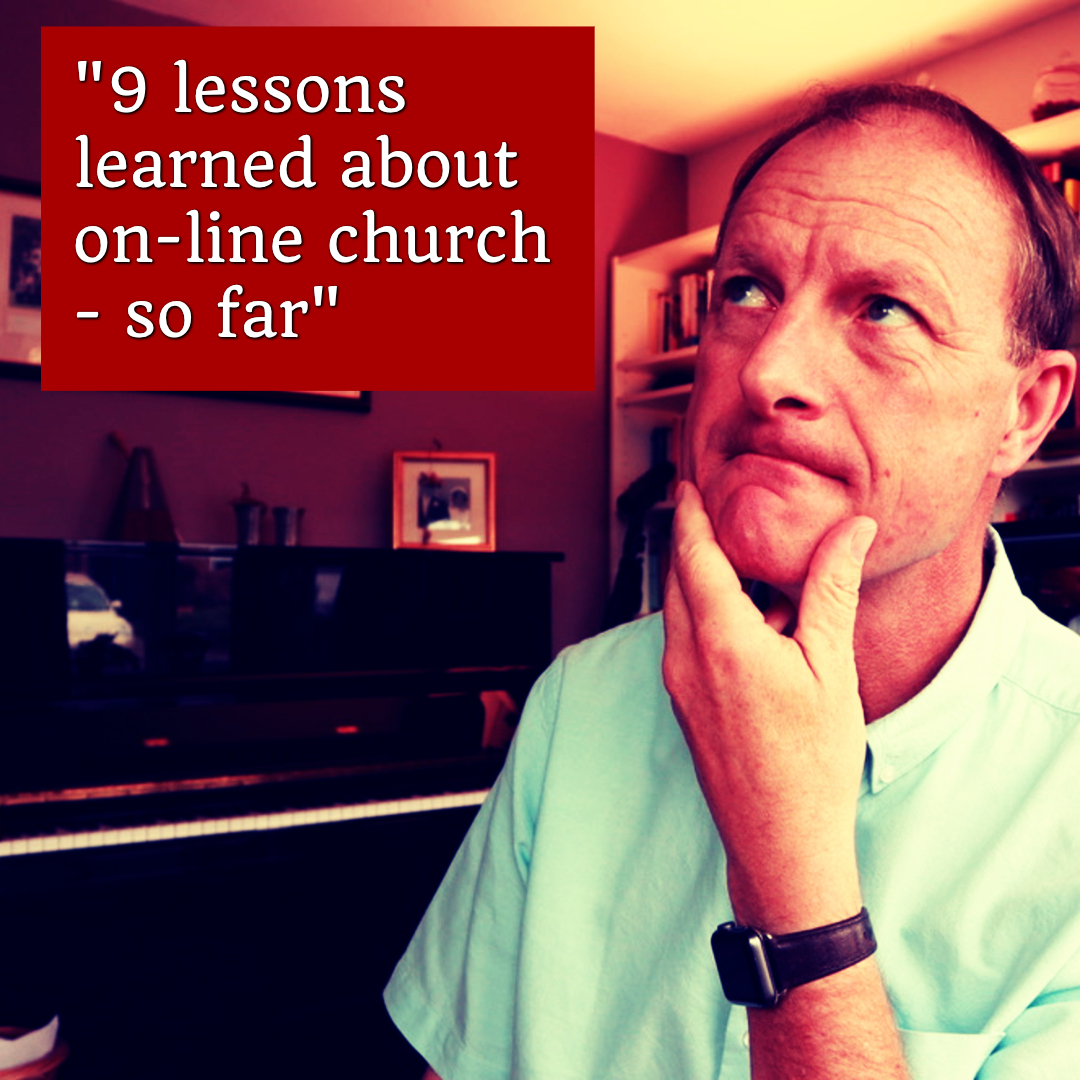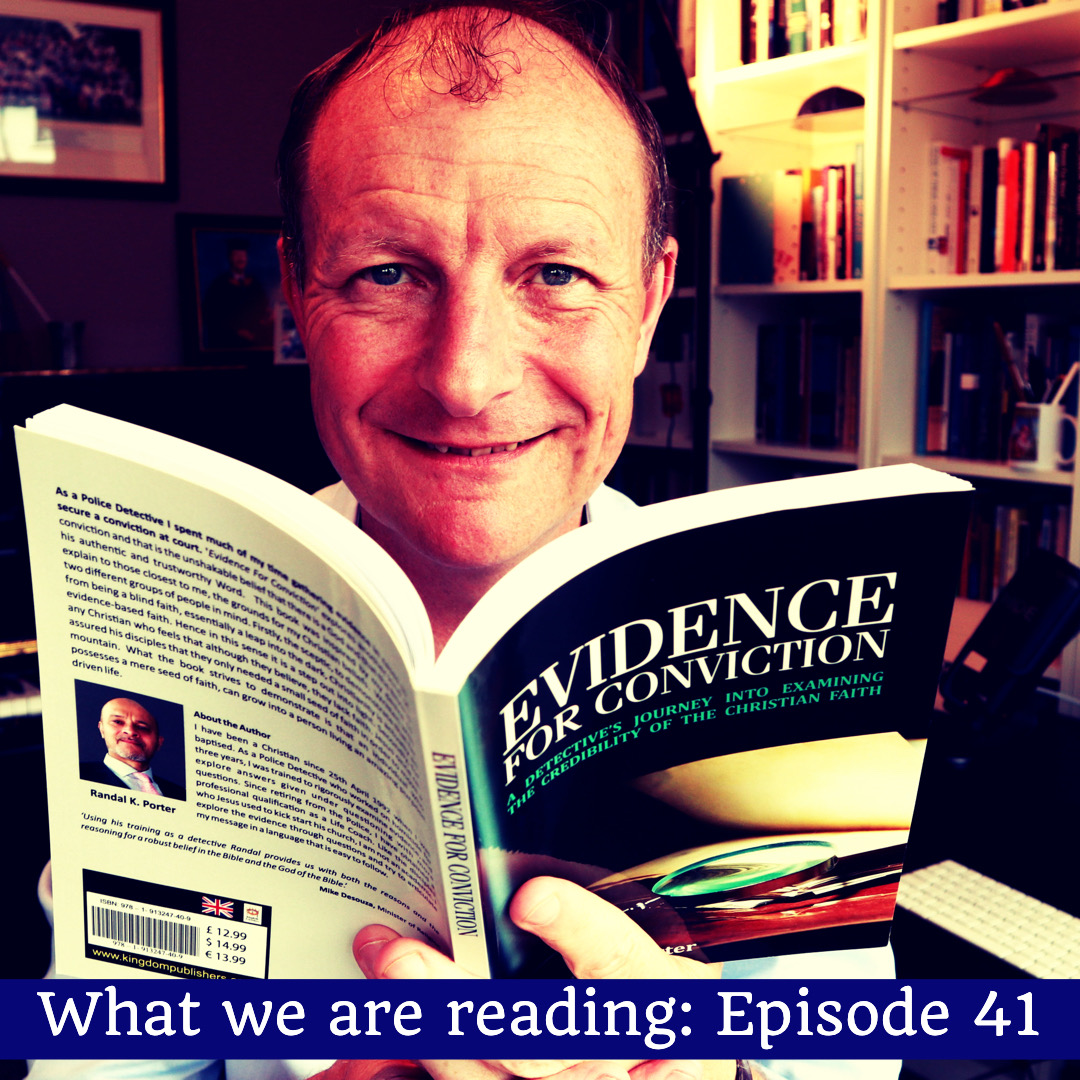The Sunday Sample, Episode 122
Like many of us, I have been on a steep learning curve regarding online church services. Now that we are a few weeks in to this new virtual church world, I thought I’d take a moment to reflect on lessons learned so far.
Lesson one: Christians our more flexible than we might think. What this new situation has revealed both in Watford and Thames Valley is a gratitude for worship which means that people will gladly embrace whatever is available. I have also been impressed with the mercy shown by church members regarding mistakes made with new technology. Very patient.
Lesson two: Maximising bandwidth. It’s worth asking people to upgrade their broadband if they can afford it. And it’s also important to ask those who are speaking or leading worship to plug into their network directly where at all possible rather than use Wi-Fi.
Lesson three: Audio trumps video. Keeping video turned on is preferable because physically seeing each other’s faces is a big help to making the fellowship feel as real as possible. However, wherever bandwidth is a challenge it’s more important to prioritise audio over video. In connection with that, it’s well worth speakers investing in upgraded microphones. The built-in microphones to laptops and web cams will do the job, but the larger the group, the more of a challenge it is to hear people clearly. Therefore, a simple USB microphone is to be preferred.
Lesson four: Speakers need training. Speaking into a camera is quite different to speaking into a congregation. Some of the lessons here are to look at the camera not the screen, avoid using bulky headphones if you can (rather distracting), where possible have a neutral background behind the speaker, and sit in front of a window to allow good natural light onto the face.
Lesson five: Collective singing is a challenge! We’ve tried a number of things. Embedding YouTube videos into slides, singing without instruments, someone singing whilst also playing guitar. Roger Packham has recorded some songs, Brian Craig has made his songs available as has a UK worship outfit called Resound worship. This is a developing space and we need keep an eye on it to make our musical worship as meaningful as possible. Some people are enjoying it, and some, frankly, are hating it and don’t find singing whilst muted meaningful. However others have a different experience. I would be very interested to know what your congregation of finding helpful.
Lesson six: The before and after space is important. We’ve taken to opening our meetings half-an-hour before they officially begin and leaving them open for 15 to 30 minutes afterwards. I’ve been struck by how many people tune in early and stay on late to connect with each other and chat. Even though it is somewhat chaotic, it has brought significant benefits to our fellowship!
Lesson seven: The children can be involved and should be. Each week in Watford the person welcoming us has taken pains to include the children by asking them questions. Giving them things to do during the service like colouring seems to work well. Elsewhere I recorded an interview with Roelien who has pioneered leading a children’s ministry class before the church service begins.
Lesson eight: More visitors are attending. It’s been a delight, and frankly a bit of a surprise, to see how many extra people are tuning in. How we can maximise this for the kingdom is not yet clear to me, but it’s a wonderful thing to connect with new people.
Lesson nine: Preaching and teaching can be as effective online as in the flesh. This is a conviction all speakers need. The reason why this is possible is because the power is in the word of God not in ourselves. And, because preaching is “truth through personality”, and you are still a person (!). As long as your personality comes across, your preaching will be effective. What this does mean, however, in terms of adjustments, is that personal sharing and vulnerability are more significant online than even in the flesh. There is something less personal about online conversation, therefore bringing out the personal element deliberately is even more important. Storytelling as part of preaching and teaching also seems to be even more significant. Storytelling is engaging, helps people stay focused and concentrate when they have distractions all around them at home. In this regard, it is also the case that for most of us, lessons should be shorter online than in the flesh. It’s not that we can’t do long online lessons effectively, it’s just that there are many distractions for people where they are listening to or watching your lesson.
Things are moving fast, and much of what I’ve written here might not be relevant in a week or two from now. But it is useful to document lessons learned as I go along. I would really like to know yours.
To summarise, let me share with you some of the lessons for me thinking about the next week or two.
1. Music: I’m going to spend some more time this week figuring out what people want in terms of musical worship on Sundays, and how to improve the quality of what they would find meaningful.
2. Variety: So far we’ve been keeping services quite simple as we learn how to use the technology. However, this week, it being Easter weekend, I’m going to freshen up the services with a little more variety and a change the format.
3. Bandwidth: I shall send a message to our congregation asking, if possible, they upgrade their broadband and Wi-Fi.
4. Visitors: We will follow up with the visitors who came to ask them if there is any way we can serve them.
I think that will do for this week, in addition to planning services and preparing lessons. I’ll let you know how those things go this time next week.
Which of the above points speak to you? What are you learning? Please share it because we are all learning at a very rapid rate, and it would be helpful to not have to reinvent the wheel!
Please add your comments on this week’s topic. We learn best when we learn in community.
Do you have a question about teaching the Bible? Is it theological, technical, practical? Send me your questions or suggestions. Here’s the email: malcolm@malcolmcox.org.
If you’d like a copy of my free eBook on spiritual disciplines, “How God grows His people”, sign up at my website: http://www.malcolmcox.org.
Please pass the link on, subscribe, leave a review.
“Worship the LORD with gladness; come before him with joyful songs.” (Psalms 100:2 NIV11)
God bless, Malcolm
PS: You might also be interested in my book: “An elephant’s swimming pool”, a devotional look at the Gospel of John


